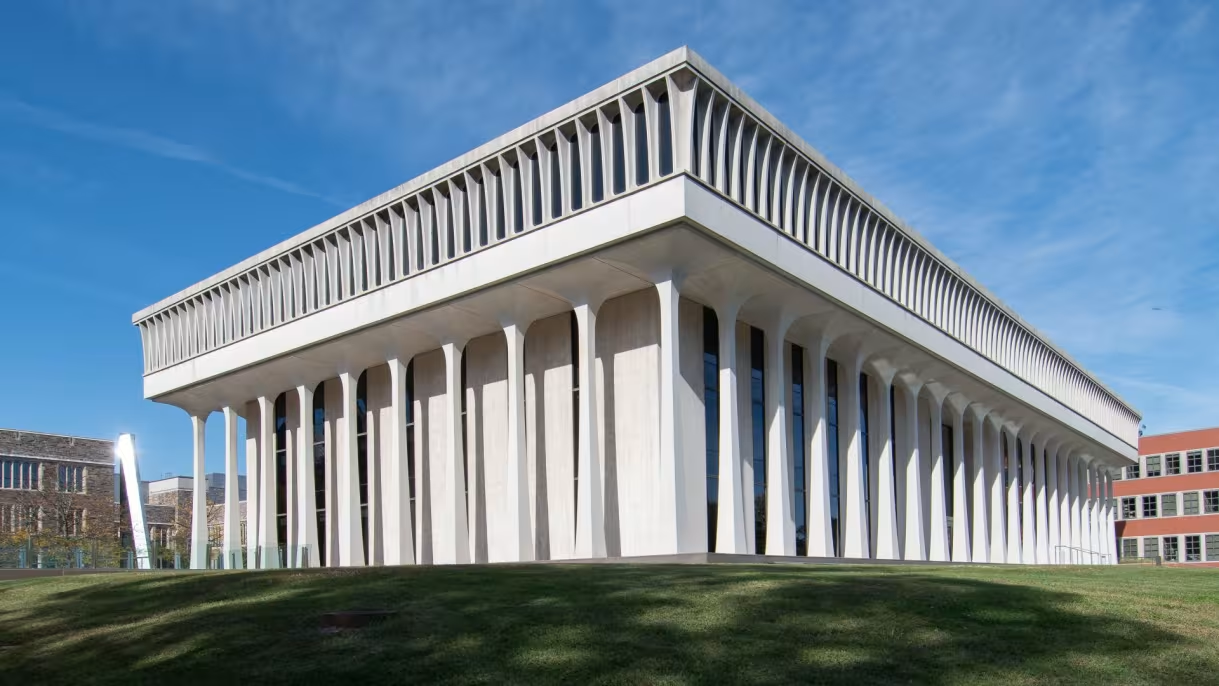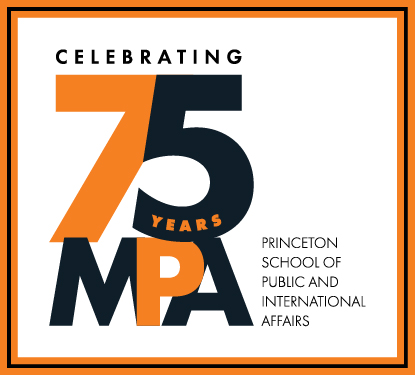

75 Years of Serving the Nation and Humanity
SPIA’s MPA program begins diamond anniversary celebration
Not long after the end of the Second World War, Donald Wallace, a member of President Truman’s Council of Economic Advisors, warned of a pressing need for a new kind of education to aid both the public and private sectors in adapting to a significantly changing world order.
“There is abundant evidence that the federal government is seriously handicapped in meeting its growing and difficult responsibilities of the present age by a lack of sufficient persons … with a kind of training commensurate with the breadth and character of their responsibilities,” Wallace wrote. “It also seems likely that larger business corporation, trade associations, labor unions, and farm organizations will increasingly be on the lookout for able young men and women with the breadth of education and training provided by such a school.”
Mindful of Wallace’s call, leadership at the Princeton School of Public and International Affairs invited him to the University to help develop the School’s first graduate program – an idea that had been in the works since the war years.
In the fall of 1948 – 75 years ago – members of SPIA’s inaugural class of Master in Public Affairs students matriculated. They would go on to graduate in the spring of 1950.
 Over the next two years, the School will mark the MPA program’s diamond anniversary with events, remembrances, and celebrations.
Over the next two years, the School will mark the MPA program’s diamond anniversary with events, remembrances, and celebrations.
“The SPIA MPA has long been and still remains one of the country’s leading, most influential programs,” said Amaney Jamal, the School’s dean. “Training future leaders to guide organizations across a wide variety of service-oriented sectors has unquestionably served our country and humanity as a whole. SPIA’s alums are well represented in domestic and international careers, serving the public good writ large. We are enormously proud of our 75 years’ worth of graduates, and grateful to the dedicated faculty who have taught and mentored them over that time.”
For three quarters of a century, the MPA program has answered its founders’ call. It has served as a critical pipeline not only to the federal government, but also to state and local governments, multilateral organizations, and nonprofits and NGOs of all sizes around the world. MPA graduates have embodied SPIA’s deeply rooted commitment to public service, coming from and moving to such careers with regularity.
“For 75 years, graduates of our MPA program have been fulfilling the University’s informal motto — Princeton in the nation’s service and in the service of humanity,” said David Wilcove, SPIA’s acting executive vice dean. “We take great pride in all that our graduates have done and continue to do to make our world a better place.”
According to Karen McGuiness, SPIA’s associate dean for graduate education and herself a member of the MPA Class of 1985, that commitment to public service is a common thread tying together all of the program’s cohorts.
“SPIA graduates have gone on to become ambassadors, high-level officials in federal agencies related to international development, Treasury, Defense, and national security; to lead foundations and non-profits; to launch social enterprises; and to serve as deans of other schools of public and international affairs,” McGuinness said. “They also seek out public office, with current representation in the U.S. Senate and the city councils of New York and Washington, D.C., and other state and local government bodies.”
Among the program’s other points of distinction is the tight-knit community it fosters, with students building close relationships as soon as they’re on campus together and remaining in close touch throughout their lives. In particular, the core course SPI 501: Politics of Public Policy, a cornerstone of the program, has historically provided an initial point of bonding for students.
“Even after many years, graduates of the program reference 501 – its lessons, its memos, its emphasis on getting comfortable being uncomfortable,” said Steven Petric, assistant dean for global outreach, admissions, and alumni engagement. “This bonding spans across class years, too, as a strong shared experience.”
The MPA’s commitment to diversity, a priority for decades, is also noteworthy. Women began matriculating in the program in 1965, and over the past few decades, they have come to comprise at least half of each class, occasionally reaching 60 percent or more. Additionally, more than 40 percent of the MPA’s current domestic student body comprises students of color. In 2024, the Students and Alumni of Color organization will hold its 27th annual SAOC Symposium, a signature event that celebrates the rich diversity of current students and alumni, facilitates relationship building, and provides social, political, and professional development.
Note: Updates on events and other anniversary-related news will be posted to the MPA 75 webpage.

